Family | Interviews | Life | Work
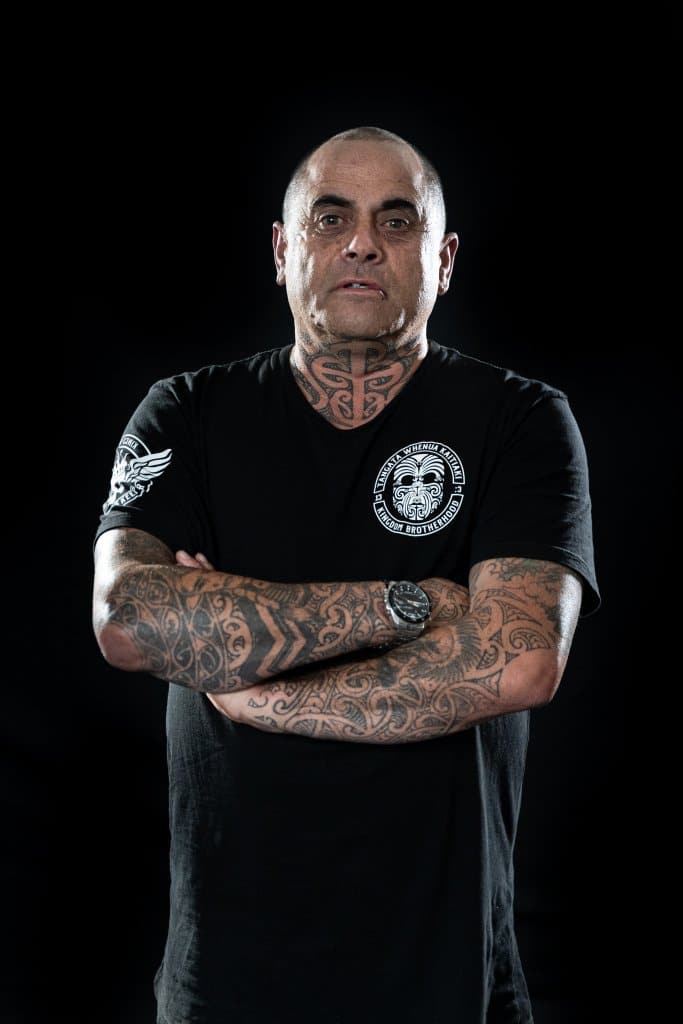
“Lucky, how did your life of crime start?,” I ask.
Sitting back in his chair, I can see Lucky Te Koha reflecting on past thoughts and memories.
“I started selling marijuana at 10 for an older guy called ‘Chub’. I remember a little, dark, stained wooden slat house - set up high on an elevated section overlooking the local primary school.
“School and I definitely didn't mix. Except for rugby, things were going pretty badly for me.
“Living in rural Lincoln, just out of Christchurch, I was kicked out of intermediate school because I beat up another student and my teacher. I was sent to a school in the city.”
The 25 kilometre trip each way took an hour every day. On the bus were two older boys - ‘Coulthard’ and ‘Gabbs’.
“They’d seen me beat two kids up on the bus for picking on my sister - from that day on, they were friendly to me.” Lucky says.
“They were a bit different, with shaved heads and mohawks, black jackets, black jeans and big black steel cap boots. After a little while, I asked them what was up with the way they dressed.
“They proudly told me, “...we’re boot boys.” So, two weeks later, there I was - wearing my old man's black work boots and ripped jeans with my shaved head and a black bomber jacket. I took that from a kid in town.”
As a boot boy, school finished for Lucky at 14. The torture of school was over - but it wasn’t over at home.
“I was soon kicked out of there as well. I’d live anywhere I could find, including on the streets. I was still only 14, so I needed to find work. I was the youngest - and most vulnerable person - in that work environment.
“I was easily taken advantage of - including being sexually abused.
“That filled me with rage - ready to kill or be killed. It didn’t matter. To me, back then, life made sense when I believed it was about being out of my mind drunk, on drugs and violent.”
Lucky says his dad was the one who modelled that ‘training’ throughout his early years.
“My answer to everything was, simply, violence. My mindset was “...anything you want, take it.
“I also believed the more drugs I sold, the more successful I'd be. And, the more drugs I took, or ‘booze’ I drank, the better I’d feel.”
“In fact, all that led to was crime, court cases, police battles, boys homes, youth prison, prison and rehabs.
“My best mates ‘Flute’ and ‘Scruff’ and I were 17 when we became skinheads. We joined a group of like minded ‘soldiers’. It was a life of addiction and violence.”
Lucky then makes a matter-of-fact statement.
“My friends start dying of suicide and overdoses. Flute passes at 20. He was my brother - I didn’t know how to feel. So, I quickly went back to my ‘comforts’ - anger violence, drugs and booze.
“Out of frustration, myself and my friends Evan, ‘Scruff’ and ‘Nig’ ‘kicked some heads in’ when we came across a rival group at the railway public bar. As we chat now, ‘Scruff’ and ‘Nig’ have passed to suicide.”
Just two years later, Lucky moved into an organised crime group full of hardened gangsters.
“Our business was drugs, the sex industry and organised crime. Looking back, it was dealing misery. I was under a guy known as ‘Tony Montana’, doing - and taking care of - business. I became known as ‘Famous’, a name given to me by a mobster called ‘Beans’ in Paparua prison.”
Life was - simply - “up and down” - even more so following the Christchurch earthquakes.
“At 49, I started seeking a better way of life. My then bride-to-be and I were moving to Kaikōura.
Saying goodbye to my ‘brothers’, I was rewarded with a lifelong membership for my “acts and services”.
“If we fast forward just three months, I’m radically saved.”
With four of Kaikōura’s five policemen surrounding Lucky, all he could think of was “...immense pain ” radiating in his chest - an “...intense feeling I was going to have a heart attack.”
As that moment in 2017 started, Lucky was harbouring a “...lifelong, pure hatred” for law enforcement.
He had for well over 40 years.
“I can’t explain how much I hated police,” he says. “It’d probably take days.”
Not even 24 hours before standing with those men, he’d assured his now wife - Hayley - “...as long as I live, I’ll hate police…”
But God. And, this was unlike any encounter he’d had with officers.
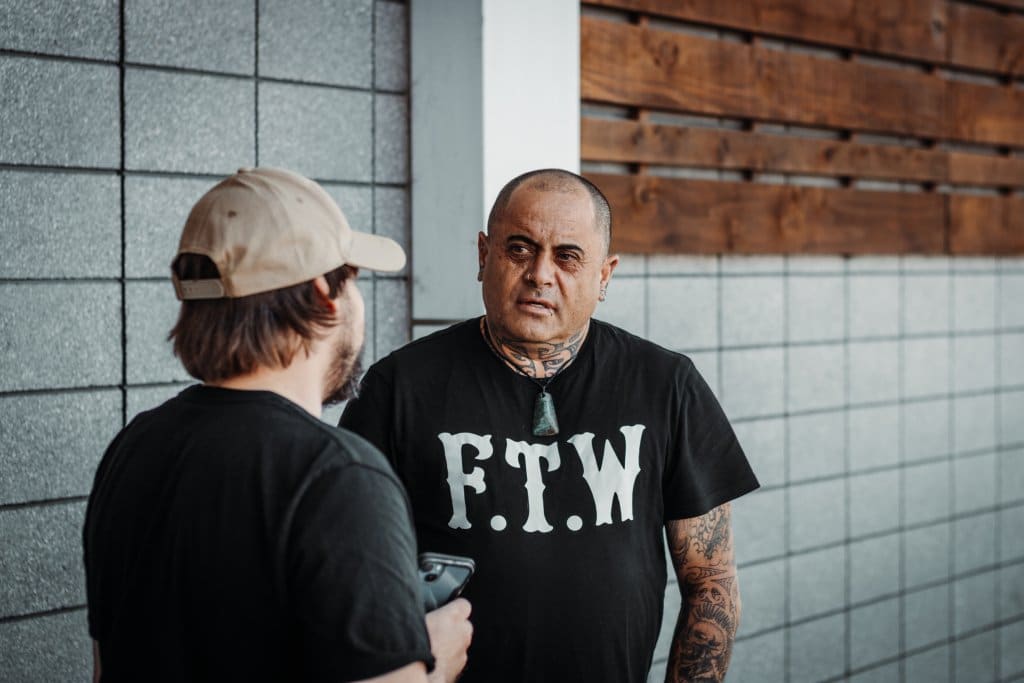
At the front of Kaikōura New Life Church on a Sunday, he’d gone forward for prayer in likely the “...last place I’d expected to be…”
One of the officers asked him to.
It was the third time Lucky attended a service. Its pastor, Brian O'Connor - who he’d met through surfing - kept inviting him.
“I knew Brian and his family, but I wasn’t aware he was a pastor. He was just a good, solid dude. I was a bit shocked when he asked me to church.”
For context, Lucky has been diagnosed with Asperger's syndrome, ADHD, obsessive-compulsive disorder (OCD), dyslexia and bipolar disorder.
Practically speaking - one of the ways Asperger's syndrome, in particular, manifests itself is in Lucky being “brutally honest, with no filter”.
Every time Pastor Brian invited him, he didn’t have an excuse not to go.
“He’d see me and invite me. I know it was God, but I really didn’t want to go.
“Hayley even asked once, as Brian left, “...are we really going?” “Yes,” I said. “I gave my word.
“I didn’t want to tell him about my first visit. I didn’t like it. Everything was so foreign to me.”
Reflecting now, Lucky “...didn't even know what ‘praying for me’ meant,” when he was invited up the front.
“When the officers prayed, my chest pain left. I sensed God saying, “...I softened you, giving you a new heart. From here on, you’ll feel for others.
“I’d never cared about anybody in my entire life - let alone felt compassion or empathy. I only knew hate, rage and anger. But, standing there, I discovered what it was to feel empathy for the first time.”
Submitting his life to Christ, something shifted in Lucky.
The deep-seated, long-lasting hatred for police he’d had for many years “fell away”.
“I know God delivered me,” Lucky reflects. “I sensed that in this house, these were my brothers.
“Why? Because I was in God’s house. That realisation was life-changing. There was an overwhelming sense of family.
As I said, just three months from turning 50, I’d only ever felt I belonged in gangs, foster homes or prison. Yet, that very moment, I'd come home. It truly was the first time I felt I belonged somewhere.”
It’s a moment only God could’ve orchestrated - its significance can’t be underestimated.
“If we’re talking about radical, this is radical. This is God.”
Lucky told Hayley the night before that Sunday he’d always hate police.
He’d been “arrested and processed” earlier that afternoon while returning to Kaikōura from Christchurch.
Then, that Sunday, as Lucky - somewhat reluctantly - and Hayley stood at the back in church, in walked the policeman who’d arrested him - sitting up the front with his family.
It’s then Lucky started feeling like his chest was in a vice “...being crushed from front and back…”
“I grabbed Hayley’s hand. “That guy pulled me over yesterday, I’ve got to go talk with him,” he said.
That and, mid-service, “...keep an eye on me. I think I’m going to have a heart attack.”
At service end, Lucky approached, tapping the policeman on the shoulder from behind. The officer’s face and shirt were wet with tears.
“I’m sorry for yesterday,” Lucky said.
Apologising too, that policeman gathered three others to pray with Lucky.
Only afterwards did Lucky discover all of them were, in fact, policemen too.
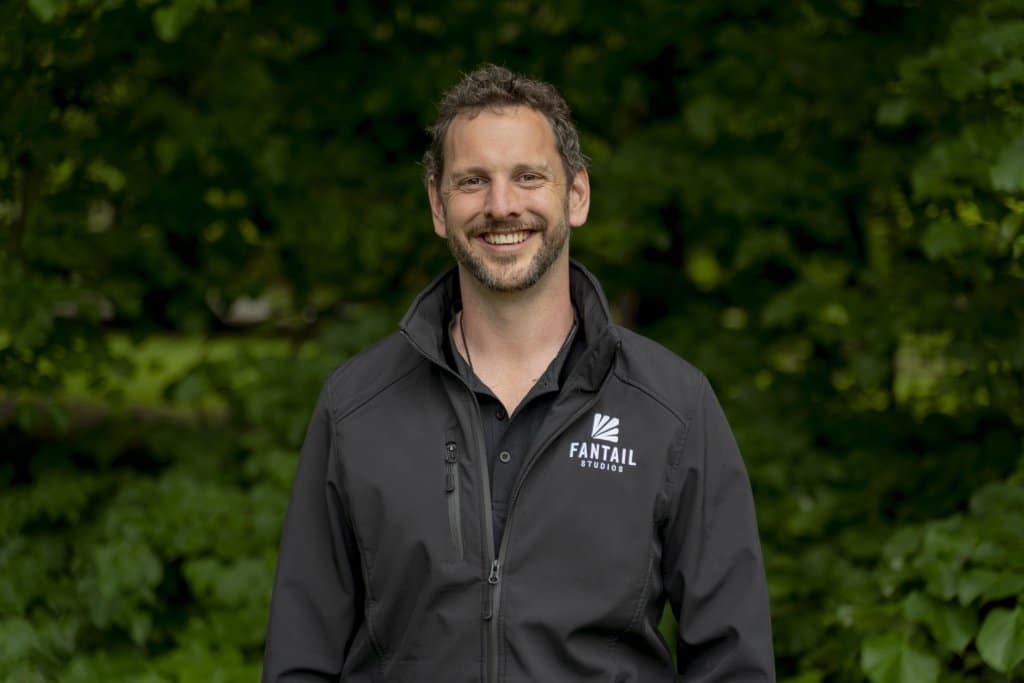
He also found out later he was pulled over because his history made him a person of interest.
A large poster of Lucky was on the Kaikōura Police Station wall.
“There was something different about the officer who arrested me though. He showed me dignity and respect.”
That ‘history’ was Lucky’s life-long involvement with organised crime.
For well over 40 years, as he mentioned - he was 49 then - it’s all he knew.
Moving to Kaikōura from Christchurch was his way of stepping towards shifting away from that life.
“I wasn’t a Christian yet, but I’d started evaluating life. That way of living was everything, yet I was asking, “...do I keep doing what I’m doing?
“The reality was, if I stayed there, I’d probably have ended up in prison for the rest of my life.”
So, he’d told those he needed to that he was leaving.
“I knew things had to change. I wanted a better future for my wife and kids, I just didn’t know how.”
He says again that, growing up, his background was - simply - violent. Mentioning a cycle of boys’ homes, foster homes, alcohol, drugs, rehabilitation, youth prison and prison.
He “didn’t have a single friend”. The first time he didn’t feel alone was during his first stay in a boys’ home.
“Dad was a violent man, mum was a Christian,” Lucky recalls.
“An amazing woman, she prayed for me daily. I'm only here because she did. I've clinically died three times - if it weren’t for those prayers, I wouldn't be here.
“All I can say is, God has a plan that He calls us to. I’m 55 - sometimes I think God could’ve called me earlier. Yet, it’s all His timing. Before, I probably wasn’t ready to steward His calling.
“I couldn’t escape that endless cycle - continually making the same mistakes. Only God could bring me to where I was desperate to change, and He did.
“I wasn’t a Christian when my mother went to be with Him either. In that sense, she didn’t see the ‘fruit’ of her prayers. Yet, here I am. Keep praying - there’s immense power in a mother, or father, praying for their child. And, a husband and wife praying together.”
Dealing drugs for almost 40 years too, Lucky started smoking marijuana and taking LSD at 11. Smoking cigarettes and drinking alcohol started shortly after.
He was addicted to heroin, prescription pills and “everything else” by 16.
Those initial choices put him on a path of addiction, trauma and depression.
Dealing methamphetamine started after 1994.
“I was a high-functioning addict. It was self medication - I needed anything to numb my mind.”
Now, Lucky powerfully describes how much God has changed him.
“He’s transformed me from a man of crime to a man of God.
“My diagnoses mean I see things in black and white, cut and dry - no middle ground. I’m all in, or all out. I’d lived in my own strength for almost 50 years. Becoming a Christian, I realised God wants our whole heart. So, I gave it to Him - all in - praying, “…You tell me what to do and how to do it.
“In my old life, I’d had everything, whatever the world said I needed to be happy. Now, I haven’t had a steady income since shortly after I was saved - and yet - in Him, I’m more content and at peace. He provides all my needs.”
“Go all in, give everything to God. Don’t ‘sit on the fence’ being lukewarm - Jesus doesn’t ask for that. He honours our decision to completely submit everything.”
Lucky now lives by “...three God-given cornerstones” from Matthew 22:37-39.
“I’ll love God with all my heart and I’ll love my neighbour. And, I’ll walk in obedience - only going where He tells me.”
Regular prayer helps him decipher that, Lucky says.
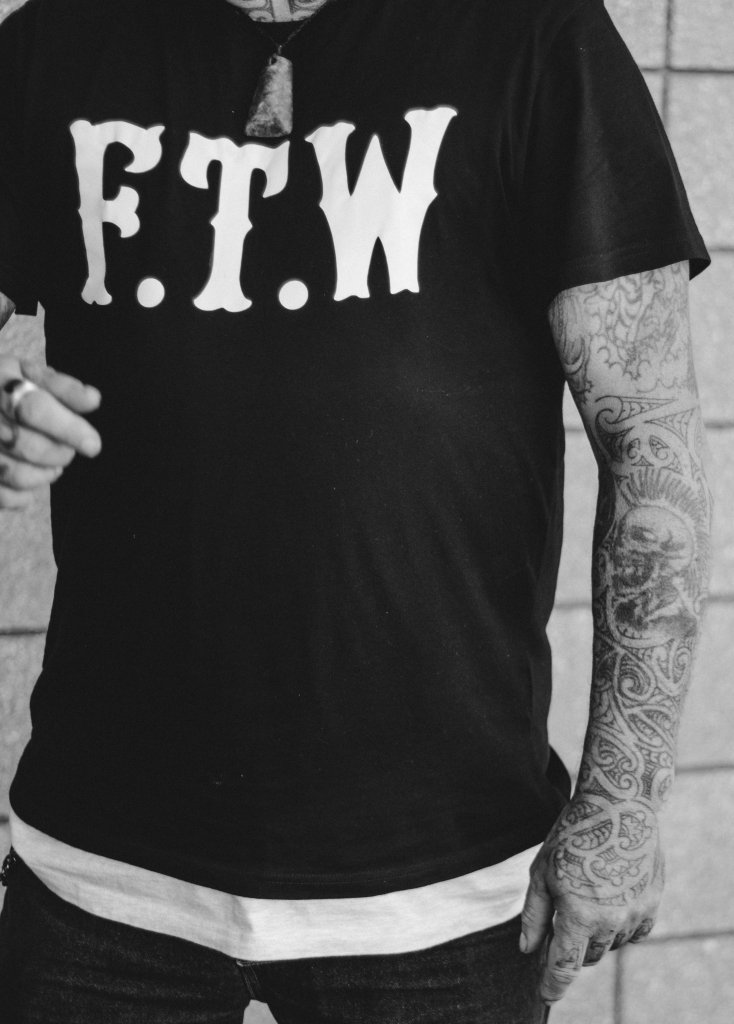
“I step out, leaving the results with Him. Jesus said, “...My sheep hear My voice…”, so I simply spend time with Him.”
Practically, Lucky’s dyslexia makes it difficult to read the Bible. He’s probably read eight pages.
“I wholeheartedly believe scripture is God’s divinely-inspired words to us. I just have to find other ways to absorb them.”
Where Lucky says he once had no friends, he now marvels at those God’s placed in his life.
One of his greatest treasures is Hayley.
“Before I came to Jesus, I once said to Him, “...if You’re real, please provide a Godly woman to help me get out of this lifestyle. Hayley is, undoubtedly, that answer.”
Lucky and Hayley - who came to Jesus after seeing God at work in her husband - have been married five years.
“She’s incredible - everything I'm not. My weaknesses are her strengths and vice versa. That’s so beautiful. I have no doubt we’re the ‘perfect match’, brought together by God.”
Five years on from inviting Lucky to church, Pastor Brian remains his “spiritual mentor”.
“My life changed simply because he was obedient to God. He has a heart for others like no-one I’ve ever met.”
Lucky then mentions Ariki Paito and Duke Kaitapu. They’re also key role models he’s “incredibly grateful for”.
“If you want good, Godly advice, find somebody whose behaviour you can model, whose morals and principles you admire. I have amazing people around me. All of them absolutely, 100 percent, have my back.”
Soon after coming to Jesus, a passion to reach those in gangs still walking the path he was once on began stirring in Lucky.
He subsequently spent 18 months crafting the “Lord’s template” for what’s now the Kingdom Brotherhood network.
Ordained as a New Life pastor, Lucky - as Kingdom Brotherhood’s national director - and another of his key mentors, Pastor Darryl Pye, travel nationwide facilitating it.
“Darryl’s my second in charge - I have the utmost respect for him. He’s wholeheartedly committed to Godly principles.”
In the two-and-a-half years since its launch, Kingdom Brotherhood now has groups in 14 locations around Aotearoa.
“God gives us all spheres of influence. Obviously, one that’s on my heart is those in gangs and organised crime. I want people who are still where I came from to discover the hope, and deliverance, Jesus offers.”
The Kingdom Brotherhood programmes Lucky shares with gangs navigate participants through Godly approaches to trauma, addiction, depression, anxiety, aggression and violence and relationships.
“And, we pray together. There’s such openness. Because the template is from God, the fruit’s incredible. There’s absolutely a heart - and desire - for change in those environments. So many want to be better people for their partners, wives and children. But, they’re just like I was. They don’t know how.”
Lucky says James 5:16 is foundational.
“In prayerfully bringing our struggles into the light before Him, they no longer hold us.”
Kingdom Brotherhood programmes have also grown to include work with youth, church congregations and church leadership and men and women from all walks of life.
“One of my favourite groups is made up of ladies - the eldest being in her 80s. In those contexts, we discuss intentional, targeted topics. The cornerstones include having a heart to see people walking in His freedom and peace. And, seeing youth - Godly leaders of tomorrow - becoming all they can be in Him.
“It’s about helping people grasp a Godly vision of who He’s calling them to be - all while journeying together.”
Lucky spoke in more than 70 churches in 2022.
In the course of Kingdom Brotherhood’s work alongside those in gangs, Lucky met Jared van Berkel.
A New Life Pastor, Jared founded - and is director of - Christchurch’s Fantail Studios.
Before Fantail, Jared pastored for almost 10 years.
In 2020, a video snippet of Lucky’s testimony was part of the first series of stories Fantail shared.
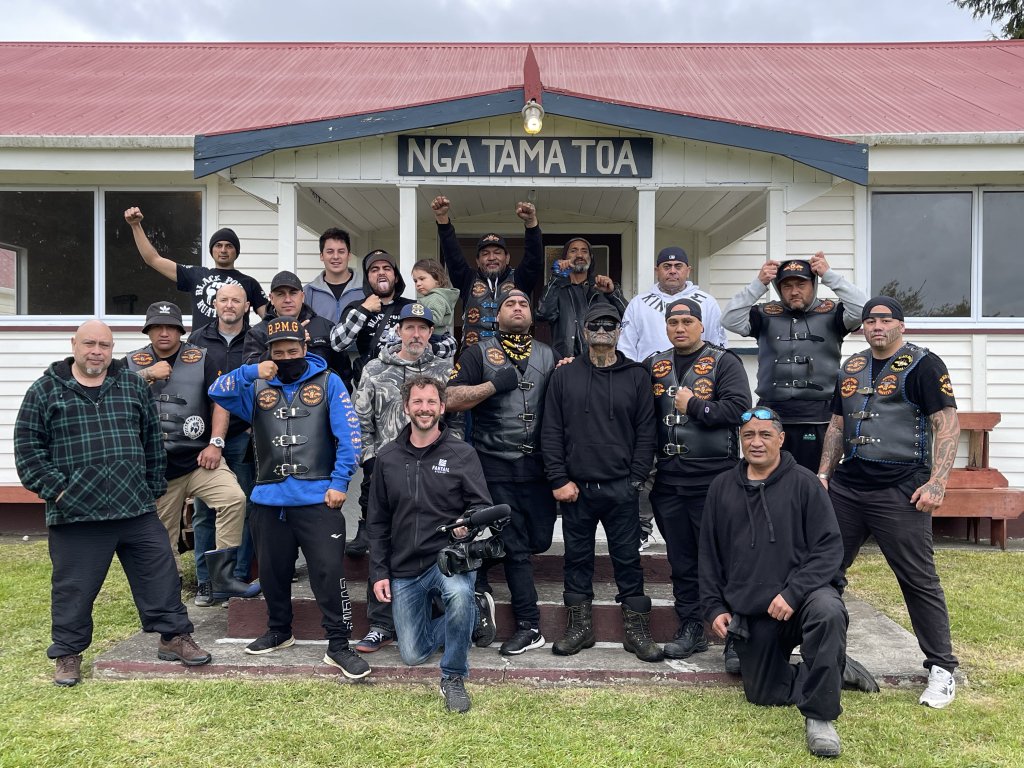
Then, a God-given “big picture” friendship developed.
“The Lord was at work,” Jared recalls. “I felt strongly the Holy Spirit wanted me to follow, film and document the restorative work God was doing in the lives of those in gangs Lucky was coming alongside.
“In ‘honest relationship’ with those we filmed, it’s about serving them and sharing their stories”.
Nearly two years on, that journey has become Mana Atua - a documentary likely due for release later this year.
Fundraising towards the cost of the project is underway - Jared has been “blown away” by how God has brought he and Lucky together in unity to, ultimately, proclaim Him.
“Mana Atua has been the most challenging - and yet life changing - film project I’ve ever undertaken.
“My hope is it takes viewers on a similar journey to what I experienced. Thinking about the time Lucky and I spent travelling around Aotearoa connecting with gangs, I sense Jesus' heart. He simply loves unconditionally - inviting us to love like, and with, Him as His hands and feet.”
As we wrap up, Lucky has one final encouragement.
“Let’s intentionally demonstrate the hope found in Jesus - practically backed up by authentic love and actions. I want people to encounter the healing, and restoration, I’ve found.
“Consider Jesus. I often ask the question, “...do we really love those who aren’t yet part of the body of Christ well?
“Our Great Commission isn’t to have ‘lanes’ when loving people. We’re called to love everyone. Sometimes, His leading requires us stepping out of any self-imposed ‘boundaries’, into what feels ‘uncomfortable’. Be bold. What He calls us to, He equips us for.
“All glory to Him. I’ll focus on what He’s called me to, committing the ‘fruit’ to God. I simply know if He can change my life, He can change anyone’s.”
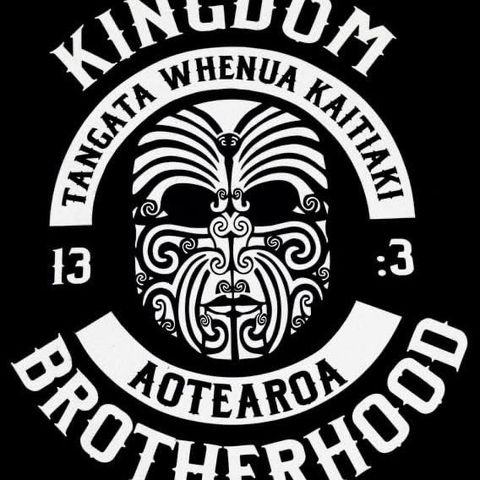
- To partner with Kingdom Brotherhood financially, donate to Kingdom Brotherhood Charitable Trust, 03-0458-0023108-00. For more, email kingdombrotherhood@gmail.com, or visit www.facebook.com/kingdombrotherhood. To follow Fantail Studios, or donate specifically to Mana Atua, visit www.fantailstudios.com/funding/mana-atua.
Share this article
Written By
Jeremy Smith
About the author
Jeremy Smith is editor of, and one of the writers for, Authentic Magazine.
Want more articles like this?
Read More Interesting articles
The Treasure Within
Some time ago in England, a young man’s Grandmother went to be with the Lord. The wider family was called…
Read More...Still Having A Ball!
Before Wynton Rufer was even 10 years old, he had a goal – to juggle a football 500 times without…
Read More...Playing Hard & Standing Firm For Jesus
Tyler Boyd has an impressive record. He has played for Waikato FC, New Zealand under 20’s, the Wellington Phoenix, the…
Read More...